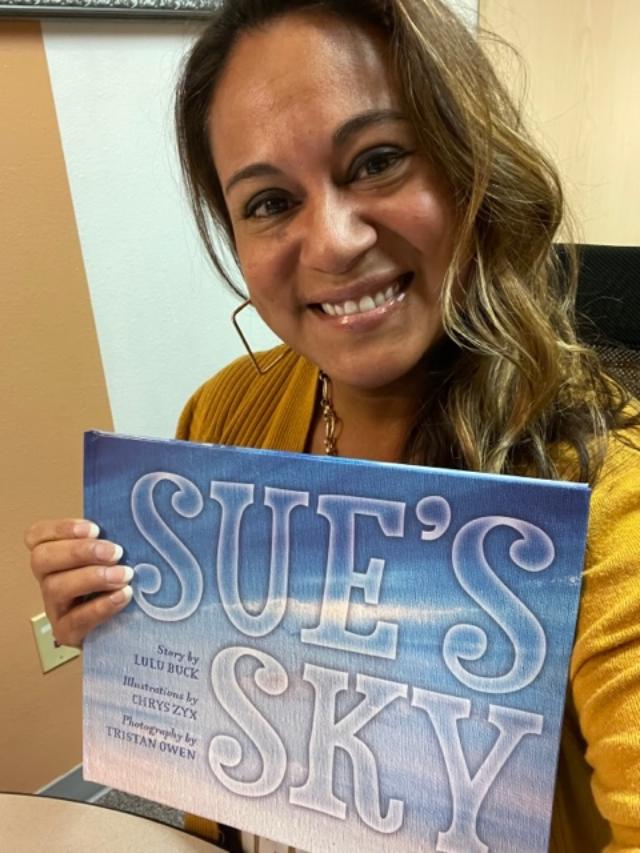By: Lulu Buck 
With systems getting more restrictive, aggressive community involvement, and politics entering our classrooms, DEI work is becoming a bigger challenge. DEI (Diversity, Equity, and Inclusion), also called DEB (Diversity, Equity, and Belonging) work is necessary and can be exhausting for educators and administrators.
DEI/DEB work is human work. It can get very complicated when working with human emotions, human beliefs, and human experiences, to name a few. Navigating the content of issues can battle your values and how to balance those within a system can sometimes conflict with what our emotions tell us. This work requires patience, grace, persistence, and strategy. As educators, we want the answers, and getting the answers in time doesn’t always happen. We are accustomed to working quickly. DEI/DEB work moves slowly, and for some, not at all. There are many moving parts to this work when working at all levels, whether it’s in the classroom, a school building, and/or the district level.
The approach to this work is one of the key factors in keeping DEI/DEB working moving forward. Evolving through the 3 As of this work is a personal process. I began my educational career as an “activist”. Growing up an English Learner and constantly being frustrated with school are the main reasons I became an educator. I would take the activist role in what injustices I saw within the schools and districts I worked for. My young mind didn’t understand the bigger systems that impacted this inequities. I would often take them out on the administration and blame the district level for these inequities. I was also never tenured. I evolved into more of an “advocate” in the middle of my career. But if you look at the definition of an advocate it is still someone who argues and defends. It is still someone that takes action on the opposing side. Now, 24 years into education, I’ve learned to be an “ambassador” of equity. An ambassador is a trusted diplomat to carry the message of equity. Within a system, one must be trusted with the work from all sides. An ambassador works slow and takes their time in investigating. An ambassador is an excellent listener. An ambassador models kindness with everyone around them.
To “blow up” the system with our emotions, personal morals, and what we think is best for students, isn’t always what is best for students. Our students want stability, safety, belonging and a thriving learning environment. Students don’t seem to have an issue with what adults perceive is an issue. To move DEI/DEB work within a district system an educator must move through one's self to be an ambassador to find success in this complicated work and to keep the work moving forward. With the complex dynamics of equity work one can’t “blow up” the system with aggressive approaches. We must model the inclusiveness we want to see in the system and oftentimes it is slow. Our impatience and emotions are what gets the best of us.
What makes this work even more challenging is knowing your community and timing of moving this work. Strategies that may work in one district, school or classroom, may not work in another. The timing of events and where communities are with this work also affect movement. If you are the type of person that constantly loves to study, investigate and find the challenge of DEI work fascinating then you have the right attitude. This is why you will always hear me say, “there is no such things as an expert in the work of equity.” One can be extremely knowledgeable and bring forward their experience, but to say they are an expert, it just isn’t possible. When you think you know what you are doing in this work, an event, comment, situation or something will blindside you and flip everything you thought you knew. Therefore, you have to love this work and know that you will make mistakes since it is human work. This work will humble any educator that engages with it.
This is how the development of the children’s book “Sue’s Sky” came forward. I believe it has an “ambassador” approach to diving deep into DEI/DEB work without feeling aggressive to school communities and classrooms. Teachers often tell me, “this doesn’t feel like an agenda and allows students to explore and bring forward things that they are wondering about.” I know that it has a unique approach to bringing these conversations to our students without “blowing up” our classrooms and systems we have to work within and still fulfill our personal values and morals. It has been extremely rewarding to work with educators to broaden the ideas and impact classroom spaces for our students to move our classrooms to be more inclusive and accepting. I’m excited and extremely honored to conduct a book study and DEI/DEB project development course with participants. My hope is that this course brings forward the wonderings, challenges and solutions we have about equity. I know that we will have deep discussions and project developments, implementations, questions, and reflections. I look forward to facilitating this course and working with educators that need a place to start with the work of equity or continue their journey with educators that engage in this work on a regular basis.
Bio - Lourdes Lulu Buck is the Coordinator of Educational Equity, Family Engagement and CWEL Child Educational Welfare Liaison for St Vrain Valley School District. She is the children’s book author of “Sue’s Sky” and Spanish version of the book “El Cielo de Susana”.

